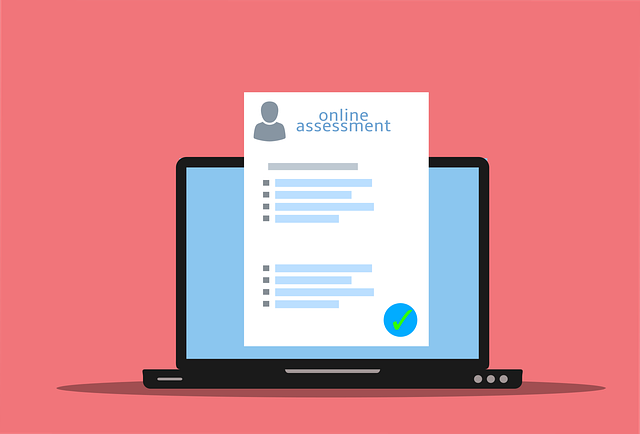In the UK, translation services for Informed Consent Forms (ICFs) are vital to ensure non-English speaking patients understand medical procedures and their rights. Accurate translations protect patient safety by preventing misunderstandings that could lead to refusing necessary care or legal issues. Professional translation services must employ skilled translators with medical terminology knowledge and cultural sensitivity to maintain ICF integrity, uphold ethical standards, and strengthen patient-provider relationships. These services are crucial for international medical research, multicultural healthcare settings, and legal compliance, empowering patients from diverse linguistic backgrounds to make informed health decisions while mitigating risks.
Accurate consent form translations are paramount in today’s global healthcare landscape. Informed consent, a cornerstone of ethical medical practice, relies on clear communication that transcends language barriers. This article explores the legal significance of informed consent forms and why their translation demands meticulous precision. We delve into cross-border healthcare challenges, risks of translation errors, patient safety implications, and ethical considerations in international research. Understanding these aspects is crucial for ensuring equality in access to quality healthcare services, respecting patient autonomy, and guiding best practices for translating consent forms, including recommendations for selecting top-tier UK-based translation services.
- Understanding Informed Consent Forms and Their Legal Significance
- The Role of Accurate Translations in Cross-Border Healthcare
- Mitigating Risks: How Translation Errors Can Lead to Legal Complications
- Patient Safety and Clear Communication Through Precision Translation
- Ethical Considerations in International Medical Research and Trials
- Ensuring Equality of Access to Quality Healthcare Services
- The Impact of Language Barriers on Patient Autonomy
- Best Practices for Translating Consent Forms: Tips and Guidelines
- Choosing the Right Translation Service Provider for Informed Consent
Understanding Informed Consent Forms and Their Legal Significance

Informed consent forms are crucial documents that ensure patients understand the risks and benefits of a medical procedure or treatment. These forms provide vital information, allowing individuals to make informed decisions about their healthcare. In the UK, where multilingual communication is increasingly common, translation services for Informed Consent Forms (ICFs) become essential. Accurate translations ensure that non-English speaking patients can fully comprehend the legal and medical implications of their consent.
The legal significance of ICFs cannot be overstated. They act as a binding agreement between healthcare providers and patients, protecting both parties. Inaccurate or unclear translations could lead to misunderstandings, potentially causing patients to refuse necessary care or healthcare professionals to face legal repercussions. Therefore, translation services for ICFs in the UK must adhere to strict standards to safeguard patient rights and maintain the integrity of medical practices.
The Role of Accurate Translations in Cross-Border Healthcare

In the realm of cross-border healthcare, accurate translations of informed consent forms are indispensable. When individuals seek medical treatment abroad, ensuring clear and precise communication is paramount to respecting patient autonomy and rights. Informed consent forms, which detail the risks, benefits, and alternatives of a proposed treatment, must be translated accurately into the patient’s native language. This guarantees that patients fully understand their options, enabling them to make informed decisions about their healthcare.
Translation services play a pivotal role in facilitating seamless communication across linguistic barriers. In the UK, where medical practices often attract international patients, professional translation services are essential. These services employ skilled translators who not only grasp medical terminology but also respect cultural nuances. By providing high-quality translations, they ensure that informed consent forms are accessible and understandable for patients from diverse language backgrounds. This, in turn, promotes patient safety, ensures ethical practice, and strengthens the patient-provider relationship.
Mitigating Risks: How Translation Errors Can Lead to Legal Complications

In the medical and research sectors, informed consent forms are crucial documents that ensure participants understand the risks and benefits of a study or procedure. However, language barriers can introduce significant risks if not addressed properly. Translation errors in consent forms can lead to legal complications, as participants may not truly comprehend the implications they are agreeing to. This is particularly critical in the UK, where clear communication is essential for maintaining ethical standards and patient safety.
Professional translation services for informed consent forms are therefore indispensable. They ensure that every detail is accurately conveyed, minimizing the chance of misinterpretation or miscommunication. By relying on expert translators who understand medical terminology and legal nuances, research institutions can protect themselves from potential legal risks and uphold the highest standards of participant welfare.
Patient Safety and Clear Communication Through Precision Translation

Patient safety and clear communication are paramount in healthcare, and this begins with effective consent form translations. When dealing with multilingual patients, ensuring that informed consent forms are accurately translated is crucial. Inaccurate or poorly translated documents can lead to misunderstandings, which may have severe consequences for patient safety. A professional translation service for Informed Consent Forms UK can help bridge the communication gap, guaranteeing that every patient fully comprehends their rights and responsibilities before any medical procedure.
Clear communication enables patients to make well-informed decisions about their healthcare. Precision translation goes beyond simple word-for-word substitution; it involves cultural adaptation and localization to ensure the content is accessible and understandable for the target audience. This is especially important in the UK, where a diverse range of languages is spoken, and healthcare providers must be able to communicate effectively with patients from various ethnic and linguistic backgrounds.
Ethical Considerations in International Medical Research and Trials

In international medical research and trials, ethical considerations are paramount, especially regarding informed consent. When conducting studies across different countries, ensuring that participants fully understand the risks and benefits of their involvement is crucial. This is where translation services for Informed Consent Forms UK come into play. Accurate translations ensure that every participant, regardless of their native language, comprehends the information presented in their consent form.
Informed consent protects the rights and autonomy of individuals participating in research. It involves providing clear, concise, and culturally sensitive explanations of the study’s purpose, procedures, potential risks, and benefits. In a globalized world where multinational trials are becoming increasingly common, it’s essential to bridge language barriers to maintain ethical standards. Translation services specializing in informed consent forms play a vital role in upholding these ethical considerations, ensuring that research conducted across borders adheres to the highest moral standards.
Ensuring Equality of Access to Quality Healthcare Services

Accurate consent form translations are vital in ensuring equality of access to quality healthcare services, especially in a diverse society like the UK. Language barriers can significantly hinder patients’ ability to understand and give informed consent, potentially leading to misunderstandings, errors, or even refusals of treatment. Professional translation services for informed consent forms bridge this gap by providing clear, precise translations that respect cultural nuances. This enables all individuals, regardless of their native language, to fully comprehend the implications of their consent and make informed decisions about their healthcare.
In the context of UK healthcare, where patients from various ethnic and linguistic backgrounds access services, translation services for informed consent forms play a crucial role in upholding ethical standards and legal requirements. They help to prevent medical errors, improve patient safety, and foster trust between healthcare providers and patients. By ensuring that every patient receives clear, accessible information, these translations promote equality and enable individuals to actively participate in decisions about their own health and welfare.
The Impact of Language Barriers on Patient Autonomy

Language barriers can significantly impact patient autonomy and the overall patient experience, especially in healthcare settings. When dealing with sensitive medical information and crucial decisions, clear communication is paramount. Informed consent forms, which are essential documents ensuring patients understand procedures and agree to treatment, must be accessible and understandable for all individuals involved.
In the UK, where a diverse range of languages is spoken, translation services for informed consent forms become indispensable. Professional translation ensures that every patient, regardless of their linguistic background, can comprehend the content fully. Accurate translations uphold the integrity of the patient’s autonomy by enabling them to make informed choices about their healthcare. It also facilitates effective communication between patients and medical professionals, fostering trust and ensuring positive health outcomes.
Best Practices for Translating Consent Forms: Tips and Guidelines

When translating consent forms, accuracy is paramount. More than just words, these documents carry significant legal weight, and any misinterpretation can lead to serious consequences. Therefore, it’s crucial to engage professional translation services with expertise in medical or legal fields for Informed Consent Forms UK.
Best practices include ensuring translators are fluent in both the source and target languages and have specific training in translating regulatory documents. It’s essential to use terminologies that align precisely with industry standards and legal terminology. Additionally, a thorough review process involving subject matter experts is vital to catch any nuances or potential errors. This meticulous approach guarantees that the translated consent forms remain legally sound and effectively communicate the same level of information as the original document.
Choosing the Right Translation Service Provider for Informed Consent

When it comes to informed consent, precision is paramount. Choosing the right translation service provider for these critical documents is essential to ensure clarity and understanding for all parties involved. In the UK, where multiculturalism is a reality, accurate translations are not just beneficial but legally required in many cases.
Look for providers with expertise specifically in medical or legal translation services. They should employ native speakers who are also subject matter experts, capable of navigating complex terminology accurately. Reputable firms will also adhere to strict quality control measures and industry standards, such as ISO 17100, guaranteeing the integrity and accuracy of their work. This ensures that your consent forms convey exactly what they intend to, in every language.
Accurate consent form translations are vital in ensuring patient safety, maintaining legal integrity, and upholding ethical standards in cross-border healthcare. As international medical practices grow, so does the need for specialized translation services (Translation services for Informed Consent Forms UK) to bridge language gaps. By adhering to best practices and choosing reputable providers, healthcare organizations can ensure informed consent processes are accessible, clear, and legally sound, ultimately fostering equality in global healthcare access.



